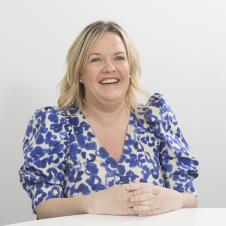Spring Statement 2022: Personal Taxes

23 March 2022
The Spring Statement made positive announcements for some UK households who are facing an increased tax burden from 6 April 2022 due to the new 1.25% Health and Social Care Levy being applied via National Insurance.
Increased National Insurance Threshold
The Chancellor announced that the National Insurance Primary Threshold for employees and Lower Profits Limit for the self-employed will be increased to £12,570, in line with the income tax free personal allowance, from 6 July 2022.
What does this mean for employees?
As an employee, you currently start to pay Class 1 Primary contributions if you earn over £823 in a month but less than £4,189 at a rate of 12%, increasing to 13.25% form 6 April due to the new Health & Social Care Levy set out above. Today’s announcement sees the threshold at which you pay National Insurance increase, but not until 1 July 2022. So for the months of April, May and June 2022 the rate of National Insurance will be 13.25% on monthly earnings over £823 but less than £4,189, thereafter it will be 13.25% on earnings over £1,047 up to £4,189.
Today’s announcement will alleviate the impact of the new Health and Social Care Levy for lower earners, with those earning up to circa £34,000 marginally better off.
What does this mean for the self-employed?
Self-employed individuals pay Class 2 and Class 4 National Insurance. The increase to the National Insurance Lower Profits limit will see the level at which Class 4 is payable increase to £12,570.
For Class 2, which self-employed individuals also pay, the measure announced today will also reduce Class 2 liabilities to nil on profits between the Small Profits Threshold of £6,725 and the Lower Profits Limit of £12,570.
In summary, for self-employed individuals with net profits up to £12,570 no National Insurance will be due.
Future reduction announced to UK income tax rates from 6 April 2024
The Chancellor also announced that the basic rate of income tax will decrease from 20% to 19% from April 2024. However, whilst beneficial for rest of the UK taxpayers and those with savings income, it is of no benefit to Scottish resident taxpayers as they are subject to Scottish rates of income tax on earned income and property income.
A three-year transition period for Gift Aid relief will apply, to maintain the income tax basic rate relief at 20% until April 2027.
For more information or to discuss any of these matters further, please don't hesitate to get in touch with me or another member of our Private Client Tax team.